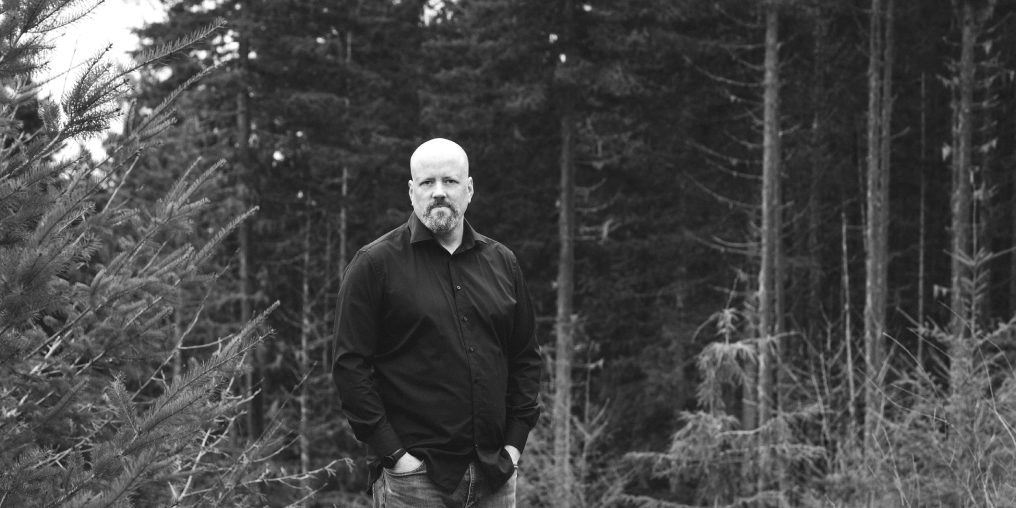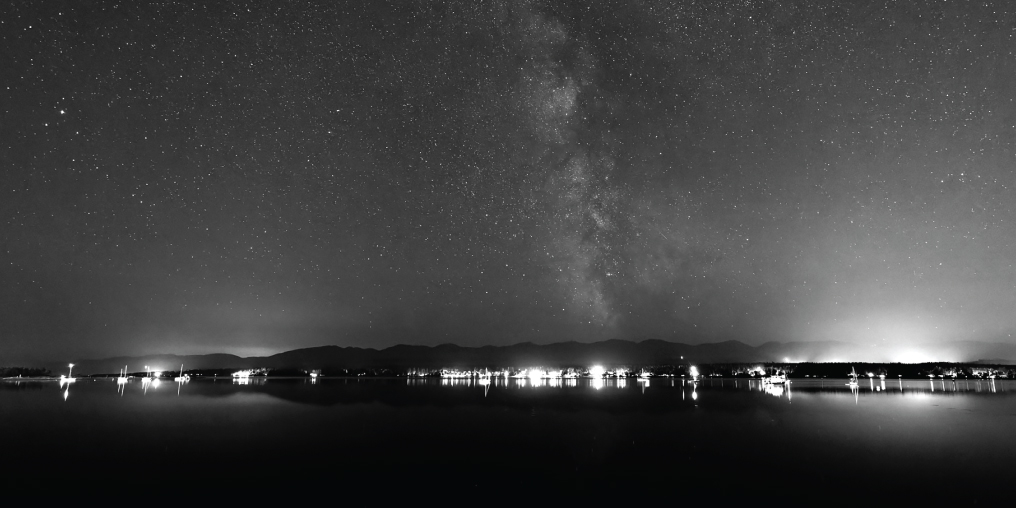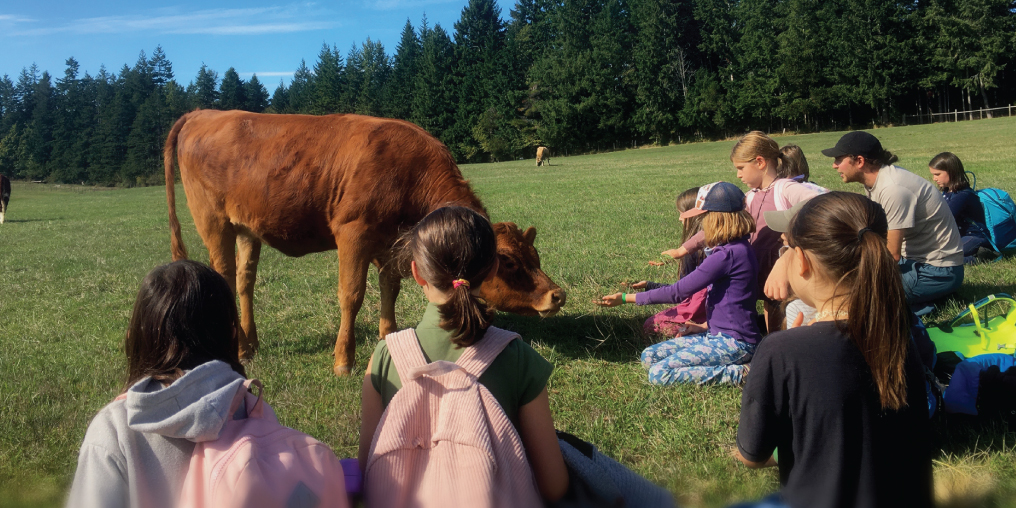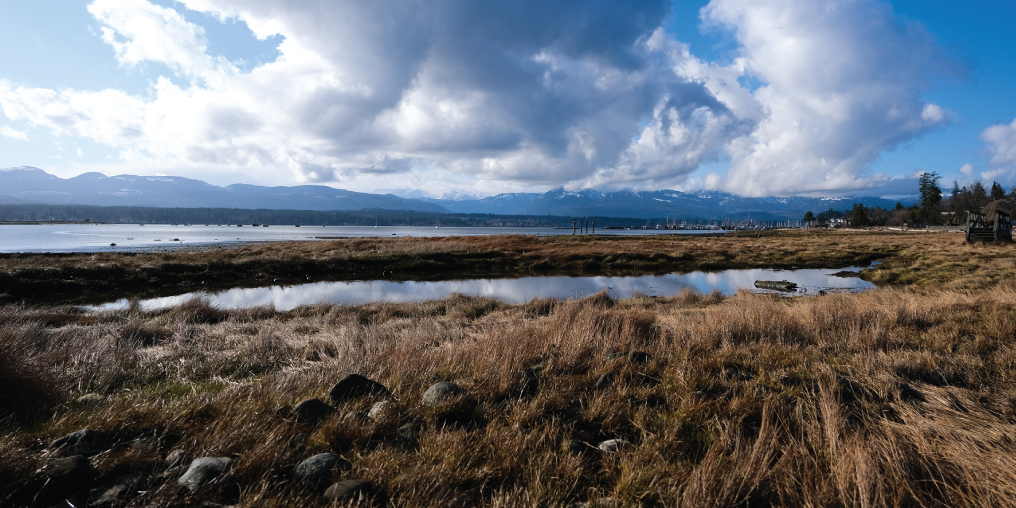Many people might be surprised to learn that one of the most successful astronomy news sites on the Internet is published from right here in the Comox Valley. Depending on what’s going on in the cosmos, between two and four million people land on Fraser Cain’s Universe Today website every month. Some of his YouTube videos have more than 100,000 views.
For the journalist and astronomy nerd, it’s a dream job. “The most amazing part … is that I can talk to anyone I want,” says Cain. He’s interviewed Nobel Prize winners, astronauts who walked on the moon, astronomers making important discoveries, and executives at space agencies. “I get to have conversations with people who blow my mind.”
Cain became interested in both space and journalism while growing up on Hornby Island. The island’s dark sky was ideal for stargazing and his parents were into astronomy. As a family, they watched lunar eclipses, admired meteor showers, and stared at constellations. Meanwhile, in high school at Vanier, Cain wrote an astronomy column for the school paper.
For a decade after graduation, he turned his back on both passions and left the Valley to pursue a career in the fledgling tech industry. Then, in 1999, he started Universe Today as a personal project—a way to test web development ideas. He started publishing articles five days per week.
“Within a year I knew it was all I wanted to do for the rest of my life,” he says.
He played around with different advertising models. But it wasn’t until Google AdSense launched in 2003 that he was able to earn enough money to quit his day job and concentrate on space full time. He moved back to the Comox Valley around the same time.
Throughout the site’s history, Cain has ignored the temptation to chase trends or social media fads. He always felt they acted like a cloud between him and his readers, middlemen that disrupted their orbits. Instead, he focused on sharing news posts, newsletters, podcasts, and videos.
“I’d rather maintain a direct relationship with my readers,” he says. “A website is a living and breathing organism. It requires care and feeding. Success comes from building in a way to communicate with the audience every day.”

There’s one downside to being open and available: trolls.
“The Internet trends toward negativity,” he says. “You have to endure a certain amount of it, just like a server at a restaurant. But I find things every day that show the other side and make it all worthwhile.”
In 2013 Cain started putting some of Universe Today’s content behind a paywall only accessible to Patreon supporters. Inspired by patrons of the past, who supported artists so they were free to create, Patreon helps creators connect with fans willing to pay a small monthly subscription-like fee for rewards and perks—in Universe Today’s case, an ad-free experience. Cain had 100 patrons overnight and never heard negative feedback.
The new platform also presented another opportunity to connect to readers. Cain makes a point of calling every new Patreon supporter to thank them.
“It amazes me how interesting they are,” he says. “Their reason for supporting me is because they want me to keep going. It always gives me a motivational boost.”
The content on Universe Today is diverse: Cain has watched rocket launches in person and learned about the search for alien life. And it’s deep: some of the stories he covers, like the Dragonfly project that aims to land a helicopter on one of Saturn’s moons, have decades-long timelines. Cain has followed that mission from its inception, and it won’t take off until at least 2034.
With space’s growing importance—from exponential growth in satellite launches to space tourism, planned missions to the moon, and beyond—Universe Today has more to cover than ever before. The site employs about 15 people, most of whom are freelancers, and Cain hosts a popular podcast to complement his YouTube channel.
He has no specific goal for the future of the site, other than continuing to follow his curiosity to the furthest reaches of the galaxy. Literally. It sounds crazy, and definitely not what he imagined when he originally built the site twenty years ago.
Yet every day he has his mind blown, and in turn he blows the minds of his readers.





